To quickly summarize:
(Click any claim to learn more)
- Baby Back Ribs are loin meat and spare ribs are belly meat.
- Baby back ribs are more tender but less flavorful.
- Spare ribs are almost always cheaper.
- Baby back ribs serve less people.
- Baby Back ribs require almost no prep. and Spare Ribs are often trimmed.
- Baby back ribs take 4-5 hours to smoke and spares take 5-6.
Where are These Ribs on the Pig?
Baby back ribs come from the upper portion of the pig’s rib cage – essentially where the ribs and the spine meet.
They are what remains after a butcher removes the pork loin:
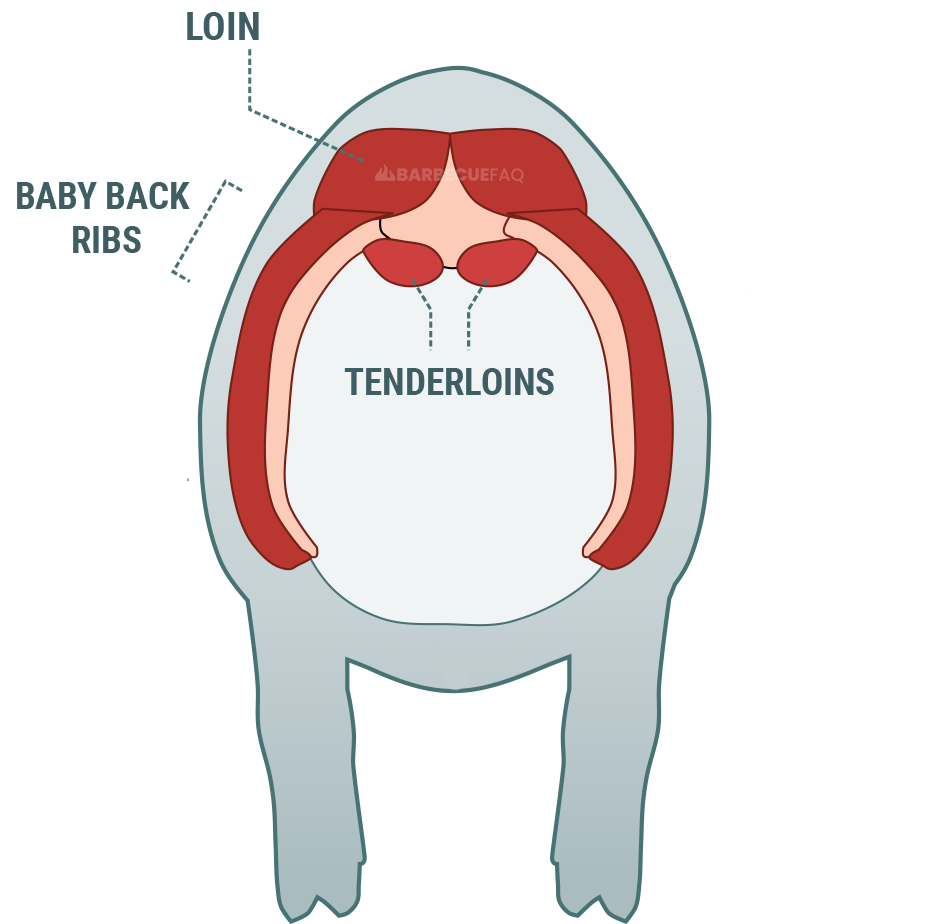
Spare ribs come from the belly of the pig, after the bacon has been removed.

Butchers consider bacon to be a “value added product” meaning they make more money by removing as much meat from the bones as possible.
More meat left on the bones means less money for the Butcher.
The Flavor Difference Comes From Where the Meat is Sourced From on the Pig
This is personal preference, and only after tasting both will you be able to determine which Pork Ribs you truly like more.
Spare ribs you could equate to fatty pork or the richness of bacon (again, it’s the same cut of meat).
Due to this fat content, spare ribs are typically described as more “flavorful.”
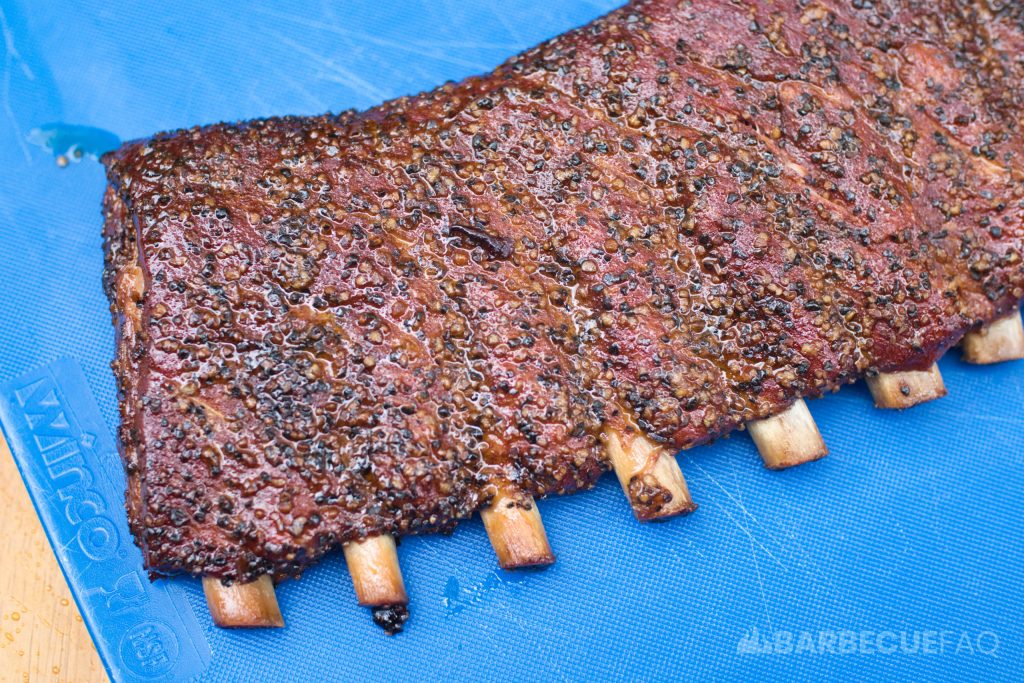
Baby back ribs are loin meat.
Meaning, the meat is inherently more tender, still porky, but far less rich tasting than spare ribs due to lacking fat.
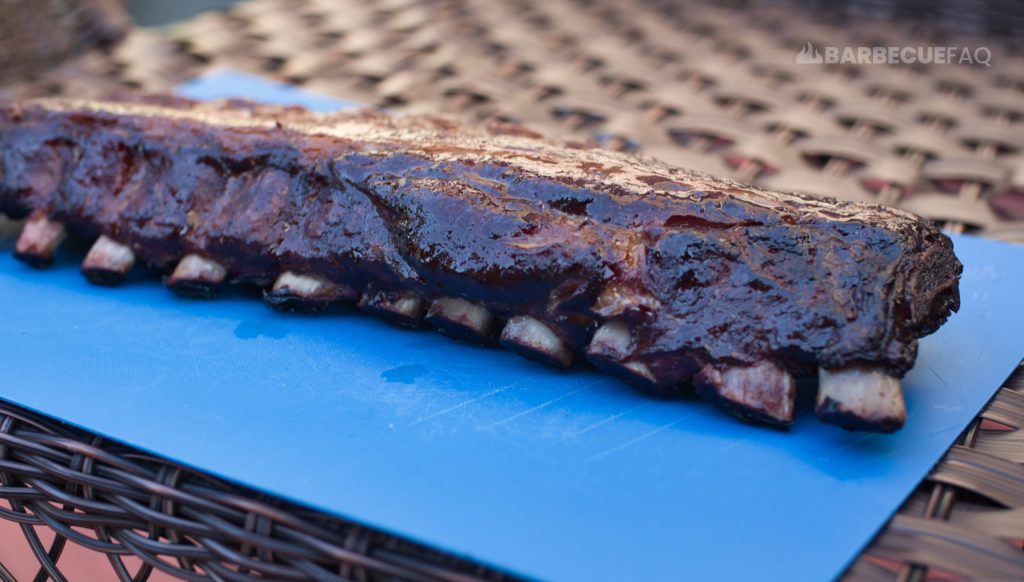
The rub you use can have a big impact on flavor too.
Sugar pairs well with both – and lots of places will tend to use just salt, pepper, and garlic with spare ribs.
Spare Ribs are Almost Always Cheaper
In almost every case – unless on sale – whole racks of spare ribs will be cheaper than baby back ribs.
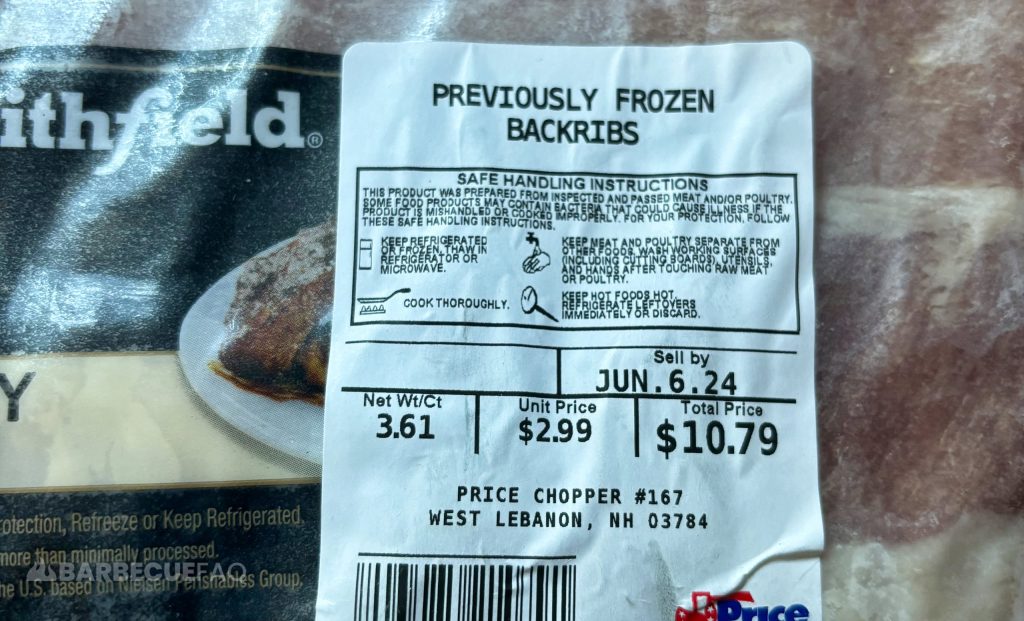
This is due to a few reasons:
- Baby back ribs are marketed far better than spare ribs.
- Baby back ribs weigh less than spare ribs.
- Loin meat is more desirable than belly meat.
The only time you’ll see spare ribs cost the same as baby back ribs is when they’re trimmed to a St. Louis Cut – as that requires labor from the Butcher (more on this below).
Typical weights and cost per pound for both:
- Baby Backs: ~3 lbs and ~$2.98/lb
- Whole Rack of Spare ribs: 3-5+ lbs and ~$1.99/lb
- St. Louis Cut Spare Ribs: ~3 lbs and ~$2.98/lb
Baby Back Ribs Serve Less People
While not by a huge margin, Spare Ribs will typically feed more people than Baby Back Ribs.
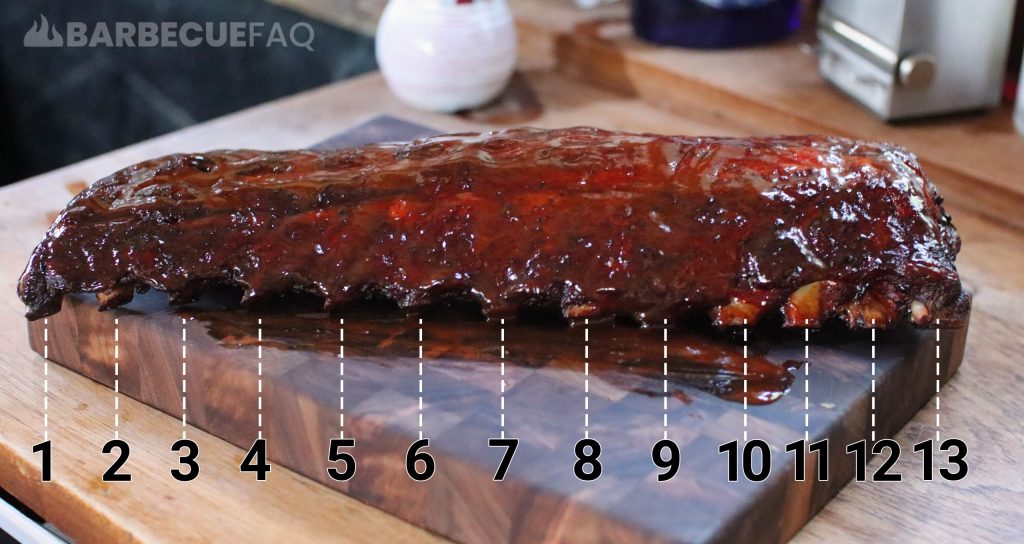
As I pointed out above, this is simply because spare ribs weigh more.
Typical serving sizes:
- Baby Back Ribs: 1/2 rack per person or 5 or 6 ribs.
- Spare Ribs: 3 or 4 ribs per person.
Baby Back Ribs are Far Easier to Prepare
A rack of baby back ribs is essentially ready to smoke out of the vacuum packaging.
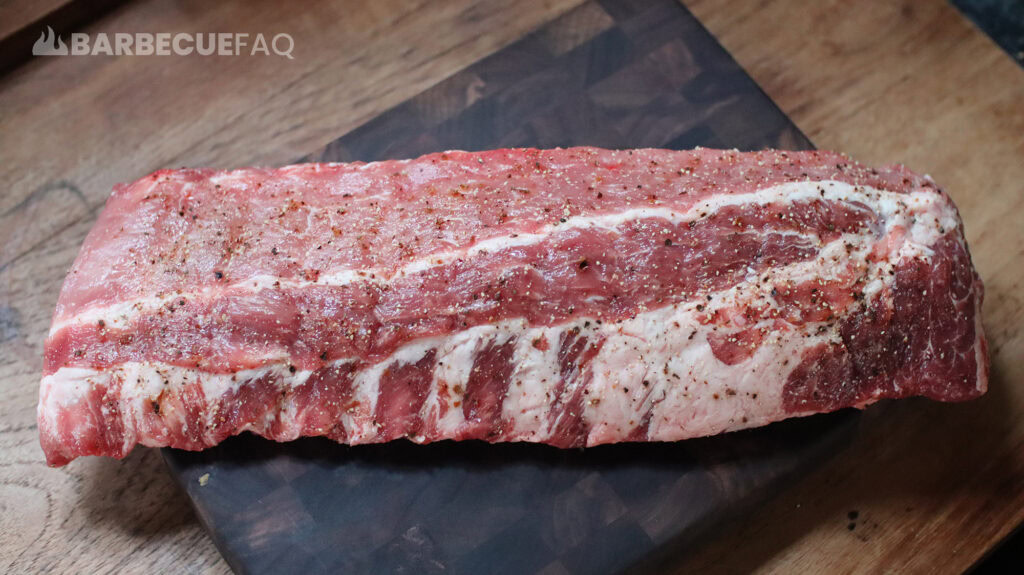
You could opt to:
- Trim pockets of fat
- Remove smaller bones from the ends
- Remove the membrane
But all-in-all, there’s very little to do.
Spare ribs are comprised of a few different “parts” that not everyone likes, namely:
- Rib Tips
- Flap Meat
- Smaller Bones

When spare ribs are trimmed to just the “center cut” they’re called St. Louis Style spare ribs.
The reason the parts above are removed is because rib tips are filled with bones and cartilage and lots of people don’t find them appetizing.
The flap meat and small bones are removed because they’re apt to dry out OR burn.
Spare Ribs Take Longer to Smoke
If you were to keep the parameters of your rib cook the same:
- The smoker you use AND the
- Ambient temperature of your smoker
Then spare ribs will always take longer to come to tenderness.
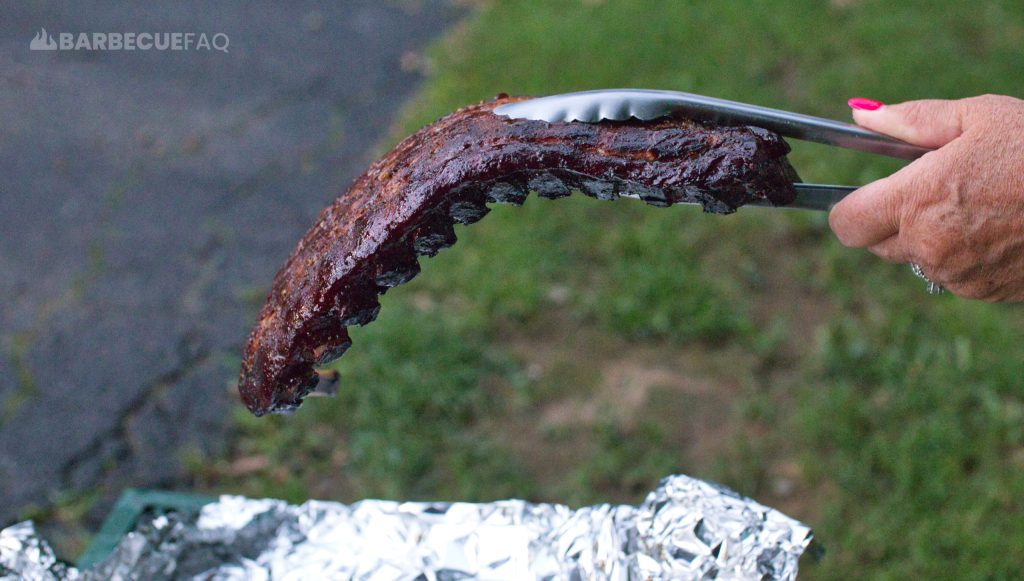


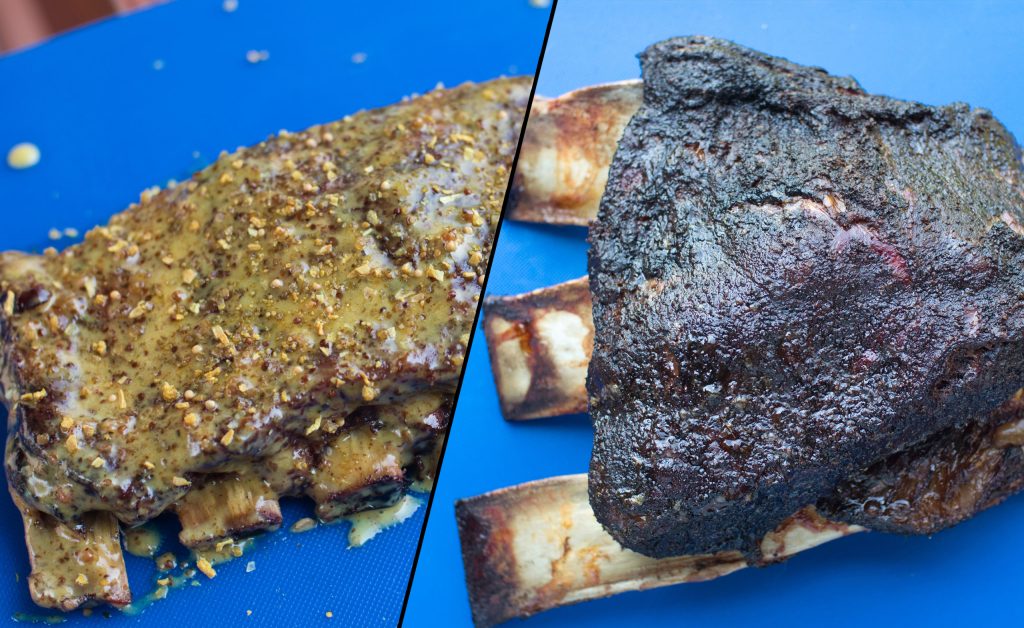
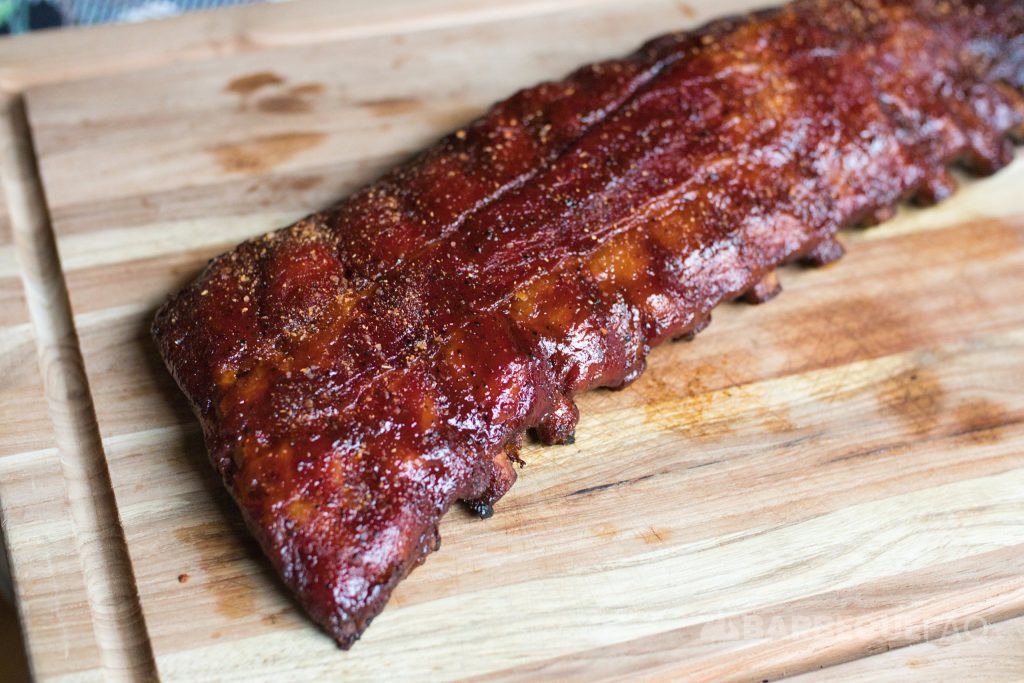
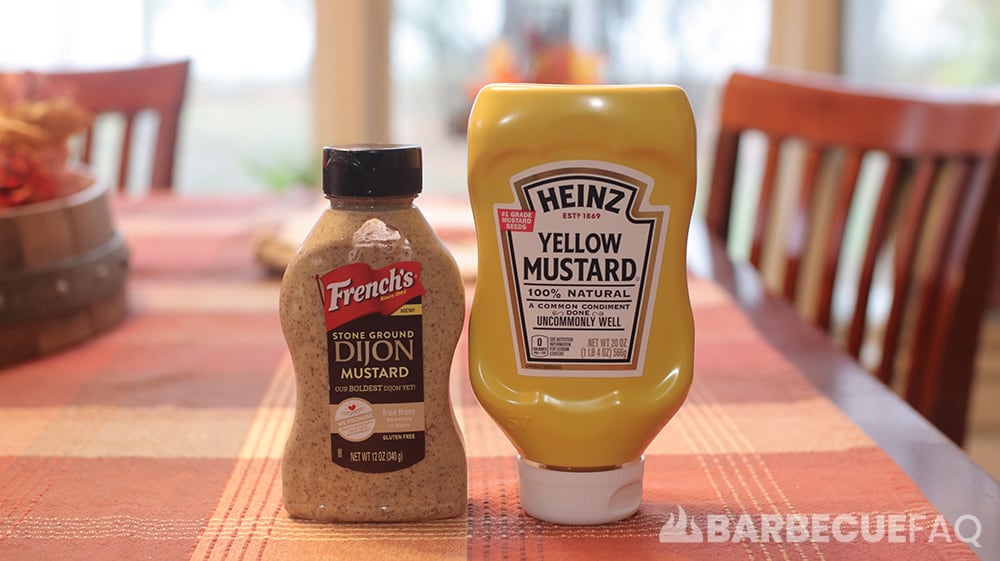
4 comments
Smith
Any meat that goes onto my grill/smoker save for ‘burgers/dogs/fish gets brined w/ my 3 quarters process: 1/4cup koshure salt/1/4cup sugar dissolved in a quarter gallon of water. Chicken soaks 3 hours, ribs 4-5 hours, brisket 2 days, Dino’s 6 hours, turkey 2 days.
Dylan Clay
Big fan of brines here too. I actually find that most of the “BBQ World” has stopped using them, alongside mops too which is a shame because they both make for great food.
Also sounds like you keep it simple like me – salt and sugar are more than enough when half the ingredients won’t penetrate.
What’s the salinity of your brine? I often go with around 2 – 5% at most.
Smith
1/4cup (50grams)salt in 1/4 gallon (1 quart) water is 5% salinity. Adding 1/4 cup sugar multiplies the osmotic gradient greatly enhances absorption of the liquid. Soaking meat too long will make your BBQ too salty to eat.
I make my own bacon. Dry brined bacon followed with several hours of cool (<80degrees)smokehouse you'll never buy the sub-dogfood store-bought bacon ever again.
P.S.: Finally got up to your neighborhood to visit the Old Man of the Mountains I read about circa 1958 only to find he had fallen off the mountain 5 months before my arrival!! Dam it!!!
Dylan Clay
Cheers, I figured it was around 5%, just didn’t know what type of salt since density is different.
Old Man of the Mountain was about 1 hour-ish away from me – I only saw it twice growing up 😀
These days the only out-of-staters I see are folks that take pictures of the Cornish-Windsor covered bridge.